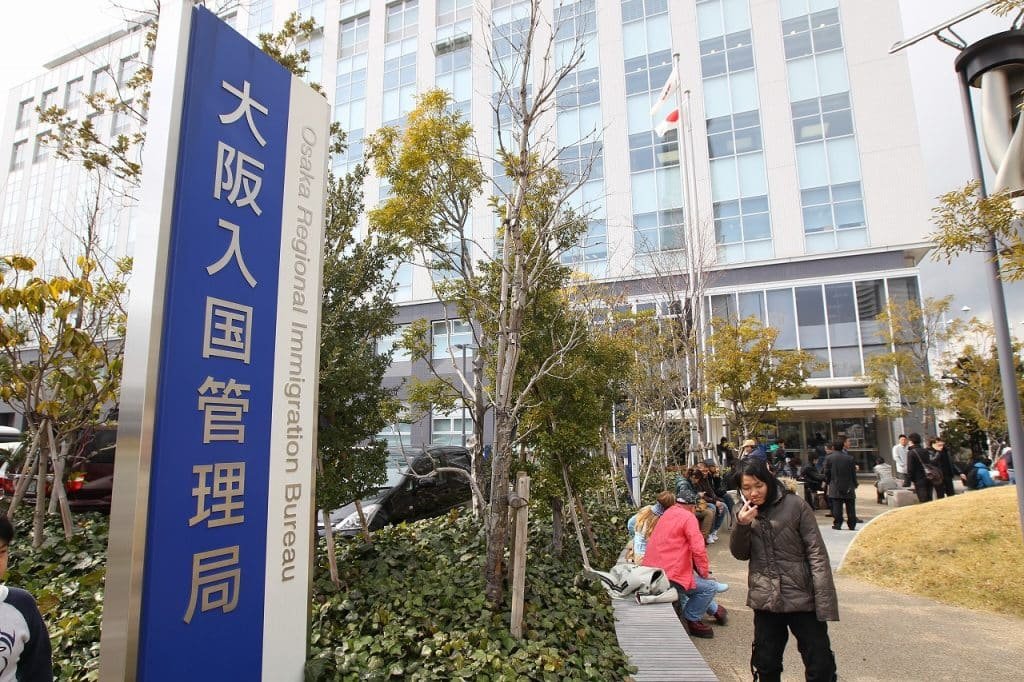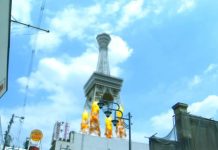Each week, here at Osaka.com, we bring you a selection of some of the top stories about Osaka making the local and national news here in Japan. Sometimes it’s serious, sometimes it’s funny, but it’s always direct to you, from Osaka.
Here’s a look at some of the stories hitting the headlines in Osaka this week.
Table of Contents
New Law Draws Ire of Permanent Residents

Osaka was the battleground this week as labor unions and rights activists made their concerns known about a proposed revision to the immigration law. The central government moved forward this week with plans to ratify a new law updating existing immigration policies. On the surface, this appeared to be a good deal for new workers coming into Japan. Unlike the much reviled technical intern system, this new process allows workers to switch jobs and gives them a coherent pathway to long-term residency.
Where the contentious nature of this new law lies however is in its implications for permanent residents. There are concerns that somewhat vague clauses allowing the revocation of permanent residency could be open to abuse.
Tax Default Rules in New Law “Too Broad”

Recent polling by the Yomiuri Shimbun, a national newspaper in Japan, showed that as many as 10% of permanent residents failed to meet their tax obligations last year. However, for context, it’s important to note that the survey does not offer a comparative figure for how many Japanese citizens failed to meet their own tax requirements. Supporters of the new law believe that cracking down on tax evasion through this new law is the way to go. Supporters say “If you pay your tax, you won’t have any issues.
However, activists in Osaka this week said it isn’t that simple.
One attendee said: “Many permanent residents work irregular hours. As such, their income can fluctuate from month to month.
“As a result, there are many instances when, through no fault of their own, permanent residents may fall behind on their taxes. Japanese workers would not face such punitive measures for this. And nor should they. After all this is totally beyond their control. However, we feel this new law is discriminatory in this respect.” Activists recognize the importance of cracking down on deliberate tax evasion.
However, without any specific provision for unintentional payment defaults, the new law runs the risk of doing more harm than good. It also, activists argue, affords far too much power to immigration officials. They fear it could come down to the attitude of the individual staff member on the day to decide whether a plea for mitigating circumstances around payment default is accepted or not.
First New Typhoon of 2024 Brings Travel Chaos

Shinkansen lines between Osaka and Tokyo faced temporary suspension this week, as torrential rain storms lashed much of the country.
Osaka was on high alert as a low pressure front moving in from the Pacific Ocean to the south brought more than a month’s average rainfall in less than 24 hours.
By Thursday, most of the storm had passed, however, authorities continue to urge caution. Residual rainstorms and sporadic flooding may continue well into Saturday.
Typhoons are an annual occurrence in the Kansai region, with Osaka, given its seafront location often bearing the brunt of such storms. However, this year’s storm hit earlier than usual. Typically, the rainy season, as it is known locally, doesn’t begin until mid-June. However, as with the higher than average temperatures this time of year, experts believe global warming may be a causal factor.
And Finally…

Anyone who has ever worked in a typical Japanese office environment will be all too aware of the pitfalls that come with misunderstandings, particularly where social etiquette is concerned. However, one Osaka-based expert sought to draw attention to a new type of office strife this week: mood harassment.
According to Kaname Murasaki, head of workplace harassment support organization, based in Nishi Ward, mood harassment is a growing problem.
Something as simple as a sigh could, according to Murasaki, be construed as a form of harassment.
Murasaki said: “Sighing is a form of power harassment.
“Whilst a single sigh alone does not constitute harassment, repeatedly doing so in front of an individual, or making negative facial gestures, even unintentionally, does.”
As if office workers in Osaka didn’t have enough to worry about with all that ultra-formal language they need to use every time someone calls them, it seems now that any form of negative expression could lead to problems.
We asked Osaka residents for comment.
One said: “I mean, the guy does have a point to a certain extent. There’s so much passive-aggressive nonsense that goes on in an office environment here. But how do you prove if it’s aimed at you or not?”
Another resident, a manager from Kita Ward, was less understanding: “Oh, what’s next? Am I not allowed to express any feelings at all at work?
Look, sometimes I get bored, sometimes I’m tired. Sometimes I’m just grumpy because the Hanshin Tigers didn’t win last night. But to express that negative feeling isn’t harassment!”
Legitimate concern, or oversensitivity? We’ll leave it to you to decide.
That’s all for now but be sure to check back again same time next week for another round of this week in Osaka!





















